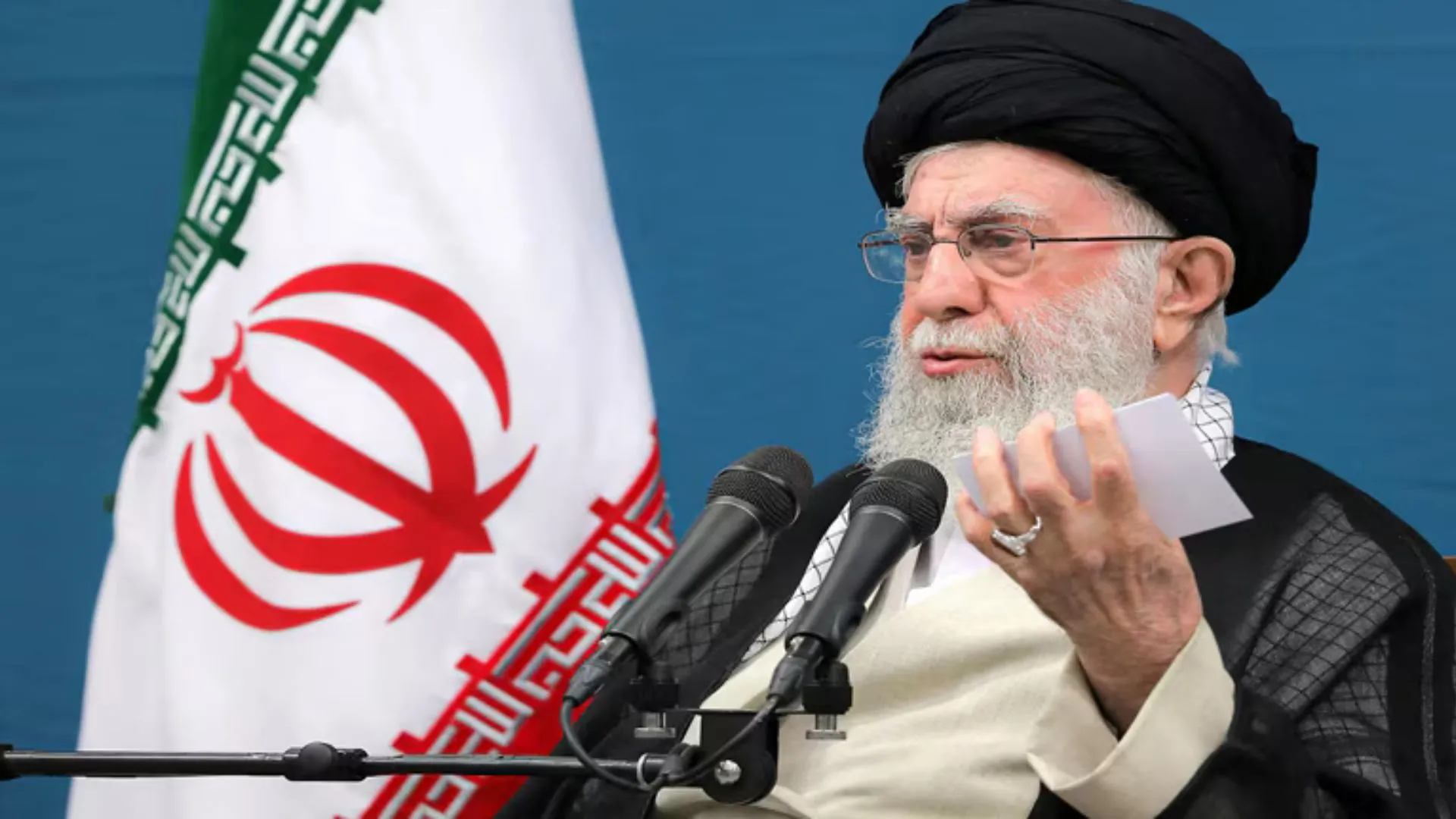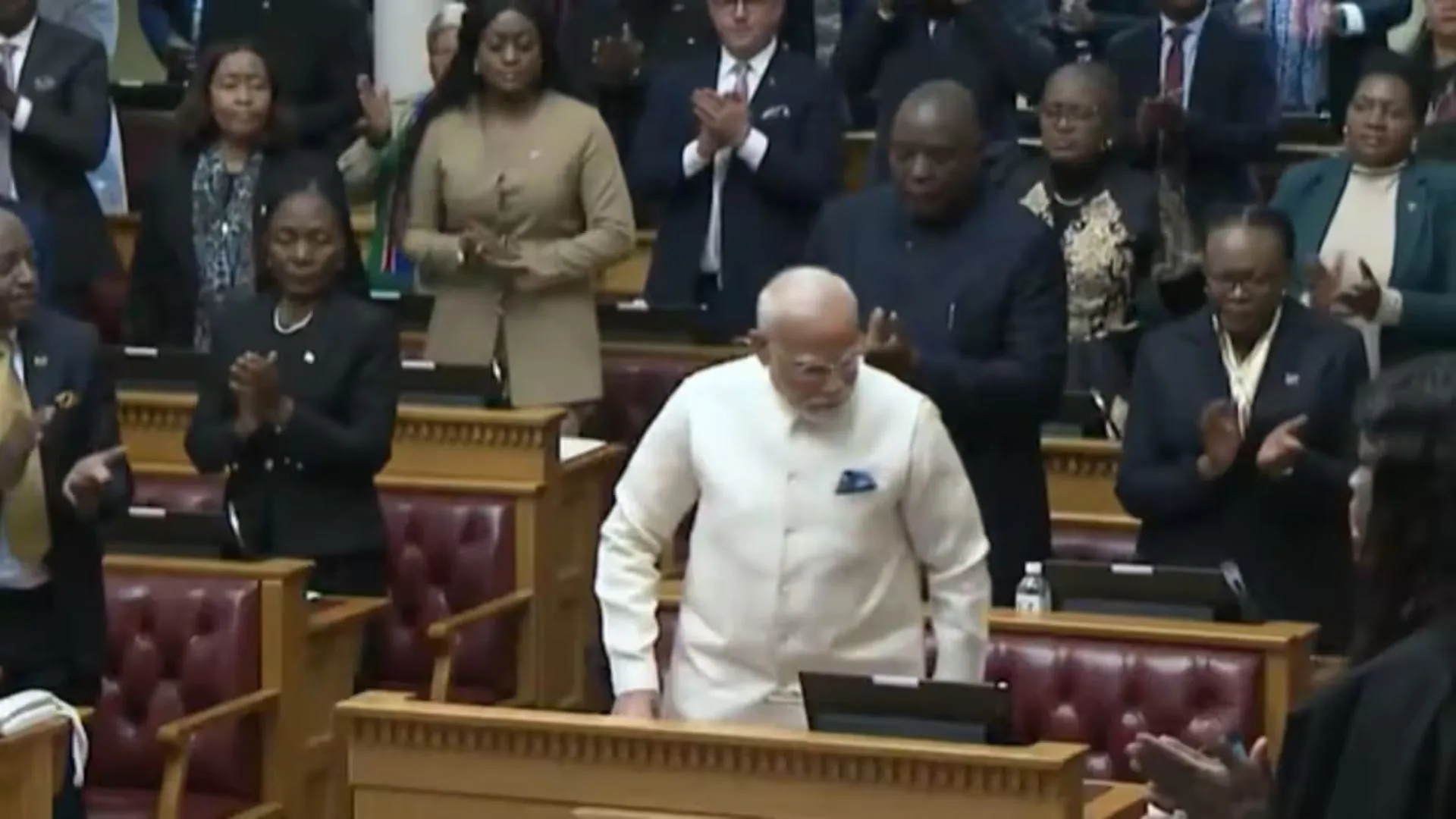A year after engaging in retaliatory airstrikes on each other’s territory, Iran and Pakistan appear to be resetting their strained relationship. Pakistani Prime Minister Shehbaz Sharif and Army Chief General Asim Munir visited Tehran, holding high-level talks with Iran’s Supreme Leader Ayatollah Seyyed Ali Khamenei and President Masoud Pezeshkian.
Gaza Crisis Sparks Diplomatic Realignment
The renewed cooperation between Iran and Pakistan stems largely from their shared stance on the Gaza conflict. During his meeting with Sharif, Khamenei acknowledged Pakistan’s resistance against Western pressure to normalise ties with Israel. “While there have been temptations for Islamic countries to engage with the Zionist regime in recent years, Pakistan has never succumbed to these temptations,” said Khamenei, as reported by The Tehran Times.
Calling Palestine the foremost concern of the Islamic world, Khamenei condemned the ongoing humanitarian crisis. “The situation in Gaza has reached a point where ordinary people in Europe and the United States are protesting their governments, yet unfortunately, some Islamic governments stand alongside the Zionist regime under these circumstances,” he stated.
In solidarity, Sharif reaffirmed Pakistan’s commitment to the Palestinian cause. Dawn quoted him saying, “It is high time that the international community used its influence to bring a lasting ceasefire in Palestine. Pakistan stands by its brothers and sisters in Iran to promote peace, progress and prosperity.”
Pakistan Raises Kashmir, Iran Stays Diplomatic
Sharif used the diplomatic platform to discuss tensions with India, referring to the recent Indian airstrikes in Pakistan and Pakistan-Occupied Kashmir following the Pahalgam terror attack that claimed 26 lives. He appreciated Iran’s “positive role” during that period.
During a press briefing with President Pezeshkian, Sharif expressed readiness for peaceful dialogue with India. “We are ready to talk, for the sake of peace on water issues with our neighbour. We are ready to talk to promote trade and also, counter-terrorism. We wanted peace, we want peace and we will work for peace in the region through talks, on the table, and resolve our outstanding issues,” Sharif said. “But if they accept my offer of peace, then we will show that we really want peace, seriously and sincerely.”
Iran’s Supreme Leader responded with a composed tone. “We are delighted with the end of conflicts between Pakistan and India and hope that the differences between the two countries will be resolved,” Khamenei posted on X.
Iranian President Pezeshkian echoed this sentiment, stating that Iran supports a sustainable ceasefire and urges dialogue to address long-standing disputes.
Past Conflicts and Present Reconciliation
In January 2024, Iran launched strikes in Pakistan’s Balochistan region targeting the Jaish al-Adl terrorist group, prompting retaliatory Pakistani airstrikes on Iranian soil. The mutual attacks heightened regional tensions. However, as per a US Defense Intelligence Agency assessment, both nations have since taken steps to deescalate, including diplomatic meetings such as this recent visit.
Khamenei noted the historical warmth between the two nations, recalling Pakistan’s support during the Iran-Iraq war. “Pakistan’s commendable stance during the war Saddam imposed on Iran is a clear example of these brotherly relations,” he stated on X.
He emphasized the necessity of Muslim unity amid global instability. “At a time when the world’s warmongers have many incentives to create conflicts and wars, the only way to ensure the security of the Islamic Ummah is the unity of Muslim nations,” he said.
India’s Strategic Calculations Amid Renewed Ties
India continues to monitor these developments while maintaining its diplomatic ties with Iran. On May 9, even as tensions with Pakistan persisted, India hosted Iranian Foreign Affairs Minister Abbas Araghchi for the 20th India-Iran Joint Commission Meeting. Both countries condemned terrorism in all forms and pushed for regional cooperation. External Affairs Minister S. Jaishankar also briefed Iran on Operation Sindoor, India’s counter-terror measures.
Previously, Iran had offered to mediate between India and Pakistan. “India and Pakistan are brotherly neighbours of Iran, enjoying relations rooted in centuries-old cultural and civilizational ties… Tehran stands ready to use its good offices in Islamabad and New Delhi to forge greater understanding at this difficult time,” Iran had said.
India has consistently treated the Pakistan conflict as a bilateral matter, making clear to global powers that the primary issue is the return of Pakistan-occupied Kashmir and the handover of terrorists harboured in Pakistan.
Gaza’s Role in Regional Diplomacy
The Gaza crisis has become a powerful unifying issue between Iran and Pakistan. While India has remained neutral on the Gaza conflict, it has reiterated support for a two-state solution and condemned civilian casualties.
Minister of State for External Affairs Kirti Vardhan Singh reaffirmed in the Rajya Sabha that India has “always supported a negotiated two-State solution, towards establishment of a sovereign, independent and viable State of Palestine within secure and recognized borders, living side by side in peace with Israel.”
Geopolitical Implications Going Forward
Pakistan’s growing alignment with Iran occurs as Tehran faces tensions with the US over its nuclear programme—while the US remains a key strategic ally of India. As regional alliances shift, India is likely to tread carefully, balancing historic ties, emerging threats, and global expectations.





















